In station 5 you may be asked to assess a patient with tiredness (or constipation, menorrhagia, weight gain, hair loss etc.)
HISTORY (3 minutes)
- Tiredness:
- What do you mean by tiredness? (mental/physical/both)
- Timing: since when, sudden/gradual onset, stable/progressing, intermittent/constant
- Thyroid questions:
- Tiredness, weight gain, forgetfulness, poor concentration/memory, low mood, hoarse voice, dry skin, hair loss, feeling cold, constipation, angina, menstrual disturbance, muscle weakness/cramps, carpal tunnel syndrome, oedema, SOB, reduced hearing, unsteadiness (ataxia)
- Neck swelling. If so, ask about SOB and swallow. Ask about sleep including snoring/stopping breathing (obstructive sleep apnoea)
- Other causes of tiredness:
- Screen for malignancy/anaemia: night sweats, weight loss, diet, bleeding (stool, periods), travel
- Screen CVS (e.g. heart failure), Resp (e.g. COPD), GI (e.g. IBD, colorectal cancer, liver disease)
- Screen Renal (e.g. CKD), MSK (e.g. rheumatoid arthritis, fibromyalgia, PMR), Neuro (e.g. myaesthenia), Endocrine (e.g. Addisons, Diabetes)
- Screen for depression, anxiety, sleep disorder
- Screen for infection (e.g. TB, HIV)
- PMH: thyroid including treatment, autoimmune conditions- Addisons (abdo pain, skin pigmentation, dizziness), vitiligo, T1 diabetes, rheumatoid arthritis, pernicious anaemia, coeliac, autoimmune hepatitis, primary biliary cirrhosis etc.
- Fx: thyroid, autoimmune conditions
- Dx: particularly amiodarone, lithium, carbimazole, interferon-alpha
- Sx: including impact on life, alcohol and drug abuse
EXAMINE (3 minutes)
Thyroid exam:
- Observe- overweight, lots of clothes, look at hair (hair loss, loss of outer third of eyebrow), neck (is there a goitre), skin (dry, coarse), is the voice hoarse/deep or speech slow
- Hands- feel (cool), puffy, pulse (brady), carpal tunnel signs (thenar eminence wasting, loss of sensation lateral 3 and a half fingers, positive Tinel’s and Phalen’s tests), nails (thyroid acropachy: hypothyroid post treatment of Grave’s disease),
- Eyes and face- observe for periorbital and facial swelling, tongue enlargement, exophthalmos+opthalmoplegia (hypothyroid post treatment of Grave’s disease)
- Neck for goitre- swallow and observe from front and side, stick out tongue, look for scars (don’t miss a thyroidectomy scar), palpate from behind and get patient to swallow, feel for lymphadenopathy, feel trachea, percuss sternum, auscultate over goitre. Is the swelling diffuse or nodular, tender or nontender.
- Look at shins for rash/oedema
- Stand from sitting (proximal myopathy)
- Reflexes (slow to relax)
- BP (diastolic hypertension)
Anaemia- check conjunctiva for pallor
Autoimmune- don’t miss Addisons (check palms, pigmented skin), vitiligo, alopecia, rheumatoid arthritis, diabetic fingerprick marks etc.
Quick assessment of CVS (pericardial effusion), Resp (pleural effusion), Abdominal systems (ascites)
ICE+EXPLANATION (2 minutes)
A suggested explanation is as follows:
“I suspect you may have an underactive thyroid gland. This means that your thyroid gland is not making enough thyroid hormone and so body functions all slow down. It is easy to treat with a tablet for life. The tablet usually works well and symptoms usually resolve. I will do a blood test to check your thyroid hormone levels today. I will also do a blood test to make sure you aren’t anaemic, to check your kidneys and liver and to test for diabetes. I’ll refer you to an endocrinologist if the blood test confirms underactive thyroid”
VIVA
Causes of hypothyroidism:
- Autoimmune eg. Hashimotos thyroiditis, atrophic thyroiditis
- Iodine deficiency or excess
- Iatrogenic- Radioiodine therapy, thyroidectomy, external radiotherapy
- Drugs- carbimazole, amiodarone, lithium, Interferon-alpha
- Hypothalamic/pituitary disorders
- Congenital e.g. thyroid agenesis
- Infiltration- Riedel’s thyroiditis, amyloidosis, haemochromatosis, sarcoidosis
- Transient- thyroiditis e.g. postpartum
Investigations:
FBC (macrocytic anaemia), U+E (hyponatraemia), LFT (autoimmune hepatitis/PBC), TFTs (high TSH, low free T4 in primary hypothyroidism), thyroid autoantibodies (anti-thyroid peroxidase antibodies, antithyroglobulin antibodies), hba1c (diabetes), CK (may be raised), lipids (often raised)
USS thyroid (if nodules felt/asymmetry)
ECG (ischaemia)
CXR (pleural/pericardial effusion/heart failure)
BP (diastolic hypertension) and L+S BP (Addison’s)
Management:
Titrate levothyroxine dose to TSH 4-6 weekly. Start low with 25-50 mcg. Aim for amelioration of symptoms, normalisation of TSH, reduction in size of goitre and avoidance of overtreatment (iatrogenic thyrotoxicosis)
Annual TFTs when stable
Weight gain and low mood etc. should resolve
Written by Dr Sarah Kennedy
Resources used to write this document include those listed in the references section of this webpage and also:
https://www.uptodate.com/contents/diagnosis-of-and-screening-for-hypothyroidism-in-nonpregnant-adults?source=search_result&search=hypothyroidism&selectedTitle=1~150
https://www.uptodate.com/contents/clinical-manifestations-of-hypothyroidism?source=search_result&search=hypothyroidism&selectedTitle=3~150
